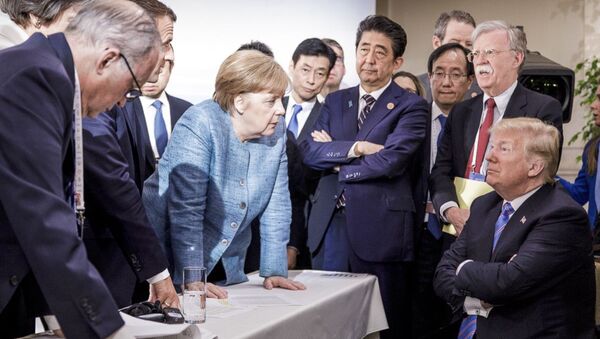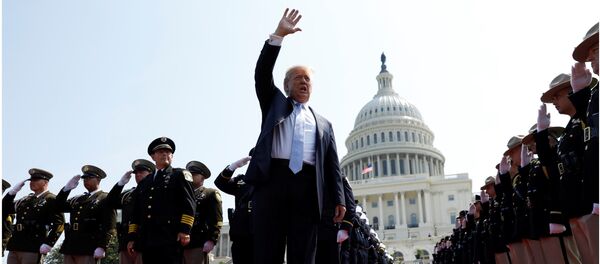Sputnik: Mr. Hofbauer, how has Russia’s image in the West changed since your book was published in 2016? Has it become friendlier?
Hannes Hofbauer: The image of Russia hasn’t become friendlier. With the first sanctions in March 2014, there was a certain amount of surprise from people that Russia was suddenly being sanctioned. Many didn’t understand that. Above all, the economies that trade with Russia suffered. But even ordinary people didn’t understand why Russia was suddenly being portrayed as an enemy. Since then, this hostile image has become solidified in the media. It’s not so obvious that you are against it. People have considered the sanctions nonsense for a long time. But they don’t hurt us. Now the Americans have tightened the sanctions. The opposing voices are softening.
Sputnik: You said that Trump's policy is contradictory. There’s talk of a Trump-Putin meeting, and Vienna has already offered to host it. What’s your take on that?
Sputnik: Why is Angela Merkel behaving like this? She spoke recently with Putin in Sochi, and it seemed that the situation between Germany and Russia has improved a bit.
However, the tightening of sanctions by the Senate and Congress this year has made it clear that the US President can’t lift the sanctions on his own. [A system has emerged] that is in complete contradiction to the American President’s authority.
Sputnik: We're talking on the eve of the opening of the World Cup in Russia. Some politicians want to come to Russia for the occasion. But the British politicians are calling for a boycott of the tournament. Is football politicized?
Hannes Hofbauer: It’s always said that sports shouldn’t be exploited politically, but it has always been the case. You don’t have to indulge in illusions. The only question is: which direction. Are the powers that be using sports to support political unity, or are they driving more wedges between Russia and the West?
In the West, the latter seems to be true. That’s bad. On the other hand, it ultimately depends on who’s playing in the final! I wish, [jokingly], that participation in the final round is limited to countries whose leaders decide to come to Moscow. Unfortunately, Austria won't be there.
The views and opinions expressed in this article are those of the speaker and do not necessarily reflect Sputnik's position.






